Stellar Awards Evaluation Panel
The Stellar Awards Evaluation Panel is responsible for reviewing all submitted Stellar Award citations and selecting the winners. Stellar Award winners are selected based on which accomplishments hold the greatest promise for furthering future activities in space, the extent to which the nominee played a key role in the accomplishment, and the extent to which the nominee meets the goal of recognizing heroes of the American space program. In addition, nominees in the early career category are evaluated based on the extent to which the nominee's past accomplishments demonstrates the potential for future contributions. The RNASA Foundation greatly appreciates the dedication and service of the distinguished individuals who have served on the Stellar Evaluation Panels.
2023 Panel
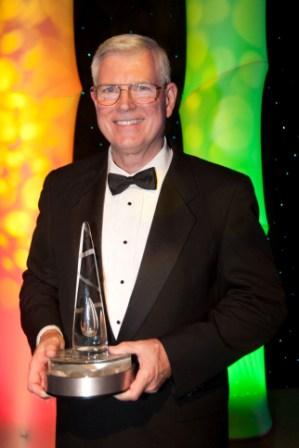
Michael L.
Coats
Michael L. Coats is a member of the RNASA Board of Advisors who is serving his sixth year on the Stellar Award Evaluation panel. Coats earned his BS degree from the U.S. Naval Academy in 1968. His highly decorated career in the Navy included 315 combat missions in Southeast Asia. He holds a master's degree in administration of science and technology (George Washington University, 1977) and in aeronautical engineering (U.S. Naval Postgraduate School, 1979). Selected as a NASA astronaut in 1978, Coats first flew as pilot of STS 41D in 1984. He commanded STS-29 and STS-39 in 1989 and 1991, respectively. He served as acting chief of the Astronaut Office from 1989 to his departure from NASA in 1991. He was vice president of Avionics and Communications Operations for Loral Space Information Systems, vice president of Civil Space Programs for Lockheed Martin Missiles and Space, and vice president of Advanced Space Transportation for Lockheed Martin Space Systems Company. He was the Director of JSC from 2005 until 2012. Under his leadership, JSC implemented over 80 partnerships and hosted summits and job fairs to help displaced workers. To help NASA attract and retain future leaders, Coats instituted the Program Project Management Development, the Space Systems Engineering Development, and the Project Leadership programs. He was inducted into the Astronaut Hall of Fame in 2007. He is now the proud full-time "Pops" to three adorable and perfect granddaughters. Coats received the
2012 National Space Trophy.
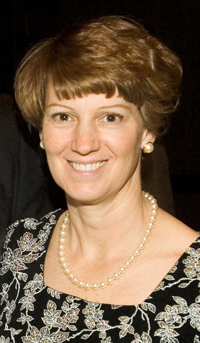
Colonel Eileen Collins
Colonel Eileen Collins, USAF (Ret.) and former NASA astronaut, STS-63, STS-84, STS-93, and STS-114, is a member of the RNASA Board of Advisors who served 5 years on the Stellar Awards Evaluation Panel. She was the recipient of the 2006 National Space Trophy and she received the award as NASA's first female Space Shuttle Pilot and Commander.
Collins earned her associate's degree in math/science from Corning Community College in 1976, her BA in math and economics from Syracuse University in 1978, a Master of Science degree in operations research from Stanford University in 1986, and a Master of Arts degree in space systems management from Webster University in 1989.
She was a T-38 instructor pilot at Vance AFB in Oklahoma, and a C-141 commander and instructor at Travis AFB in California. From 1986 to 1989, Collins taught math at the USAF Academy in Colorado and was a T-41 instructor. She graduated from the Air Force Test Pilot School at Edwards AFB in 1990 before her selection that year as a pilot astronaut. Collins first flight was the first for a woman pilot.
Collins flew on STS-63 Discovery from February 3-11, 1995, STS-84 Atlantis from May 15-24, 1997, STS-93 Columbia from July 23-27, 1999, which was the first Shuttle mission to be commanded by a woman, and STS-114 Discovery from July 26 to August 9, 2005.
Her special honors include the Defense Superior Service Medal, Distinguished Flying Cross, Defense Meritorious Service Medal, Air Force Meritorious Service Medal with one oak leaf cluster, Air Force Commendation Medal with one oak leaf cluster, Armed Forces Expeditionary Medal for service in Grenada (Operation Urgent Fury, October 1983), French Legion of Honor, NASA Outstanding Leadership Medal, NASA Space Flight Medals, Free Spirit Award, and the 2006 National Space Trophy.
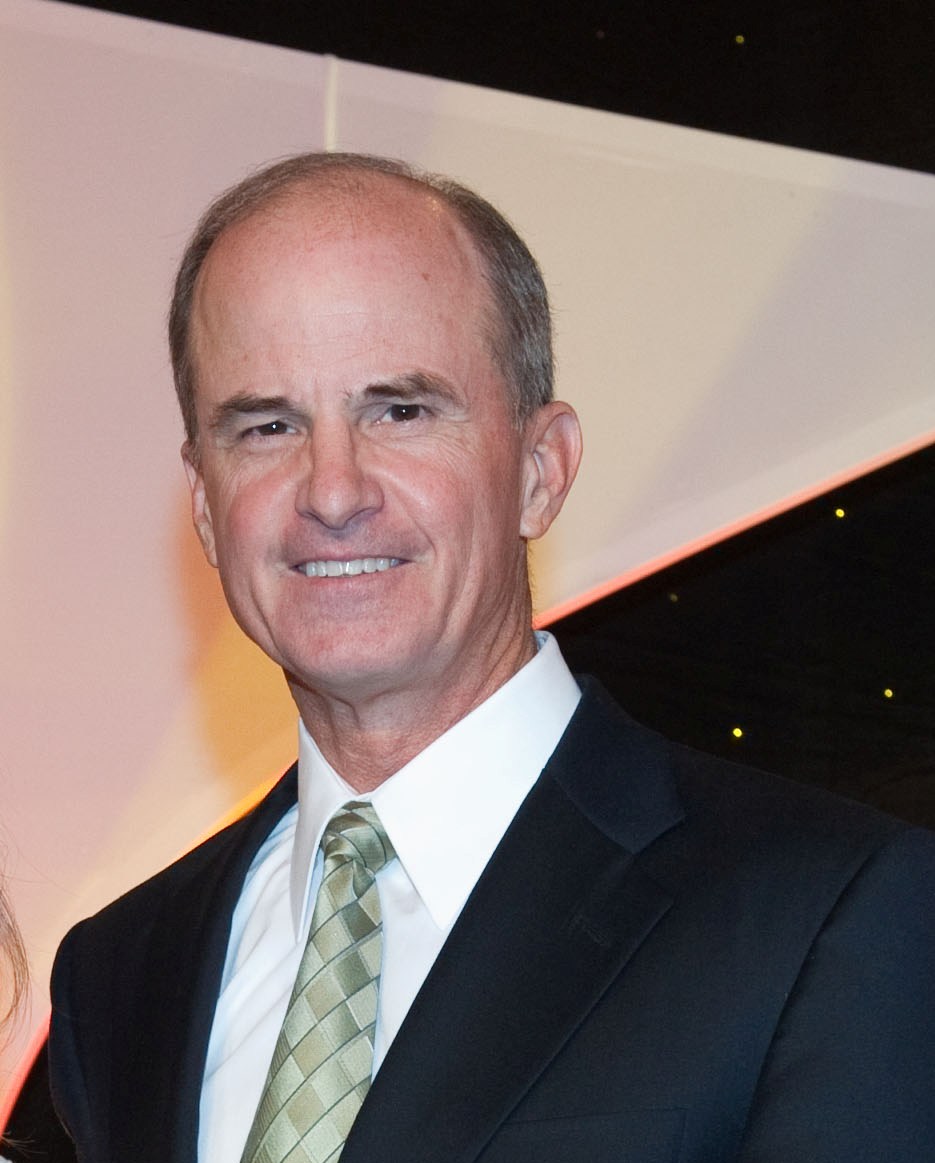
General Kevin P.
Chilton
General Kevin P. Chilton is a member of the RNASA Board of Advisors who served six years on the Stellar Award Evaluation panel. A graduate of the U. S. Air Force (USAF) Pilot Training and Test Pilot Schools, Chilton holds a BS in engineering science from the USAF Academy and an MS in mechanical engineering from Columbia University. He served operation and test assignments in the RF-4, F-4, and F-15 prior to his selection as an astronaut in 1987. Chilton piloted the maiden flight of Endeavour on STS-49 in 1992, and the Space Radar Laboratory mission, STS-59, in 1994. In 1996, he commanded STS-76, the third docking mission to the Russian Space Station Mir. He served as deputy program manager for the International Space Station until leaving NASA in 1998.
Chilton served on the Air Force Space Command Staff, the Air Staff, the Joint Staff, and commanded the 9th Reconnaissance Wing, 8th Air Force, Joint Functional Component Command for Space and Global Strike, and Air Force Space Command. From 2007 to 2011, he commanded the U. S. Strategic Command overseeing plans and operations for all U. S. forces conducting strategic deterrence and the Department of Defense's space and cyberspace operations. He retired from the Air Force in 2011 and now serves as a Director of Centurylink and Aerojet Rocketdyne Corporations. Chilton received the 2011 National Space Trophy.

Dr. Charles Elachi
Dr. Charles Elachi is a member of the RNASA Board of Advisors who is serving on the Stellar Award Evaluation panel for the second time. Elachi is credited with pioneering the use of radar remote sensing techniques, overseeing missions such as the Shuttle Imaging Radar series, the Magellan Imaging Radar at Venus and the Cassini Titan Radar currently studying Saturn's moon Titan. He has taught the physics of remote sensing for two decades at the California Institute of Technology. As a research scientist, he has authored more than 200 publications in the fields of active microwave remote sensing, wave propagation and scattering, electromagnetic theory, lasers and integrated optics. He has been a member of the National Academy of Engineering since 1989 and has received numerous awards and medals, both in the United States and internationally. These include the NASA Exceptional Scientific Achievement Medal and Outstanding Leadership Medal, the COSPAR Nordberg Medal, the German Wernher Von Braun Award, the Nevada Medal, and the Dryden Medal. The Takeda Foundation of Japan awarded him its medal for his work in developing space radar instruments to monitor the global environment. He also has an asteroid named after him: 4116 Elachi. In 2007, U.S. News and World Report named Elachi one of America's Best Leaders. Elachi received the
2016 National Space Trophy.
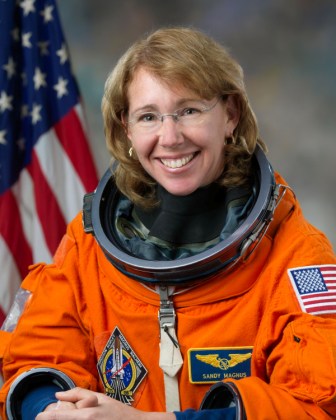
Dr. Sandra Magnus
Dr. Sandra Magnus is a member of the RNASA Board of Advisors who is serving her third year on the Stellar Award Evaluation panel. Magnus received a bachelor of science in physics and a master of science in electrical engineering from the Missouri University of Science and Technology and a Ph.D. in engineering from the School of Materials Science and Engineering at Georgia Institute of Technology in 1996. Magnus was selected for the Astronaut Corp in 1996 and is a veteran of three space flights, including STS-135, the space shuttles final flight. She served as flight engineer for STS-126 in November 2008 when she spent four months aboard the ISS. She went on to serve as Exploration Systems Mission Directorate and as the deputy chief of the Astronaut Office. Currently, Dr. Magnus is the Deputy Director for Engineering in the Office of the Under Secretary of Defense for Research and Engineering. In this role, she leads engineering policy, mission integration management, and program planning. Dr. Magnus is a recipient of the NASA Space Flight Medal and the NASA Exceptional Service Medal.
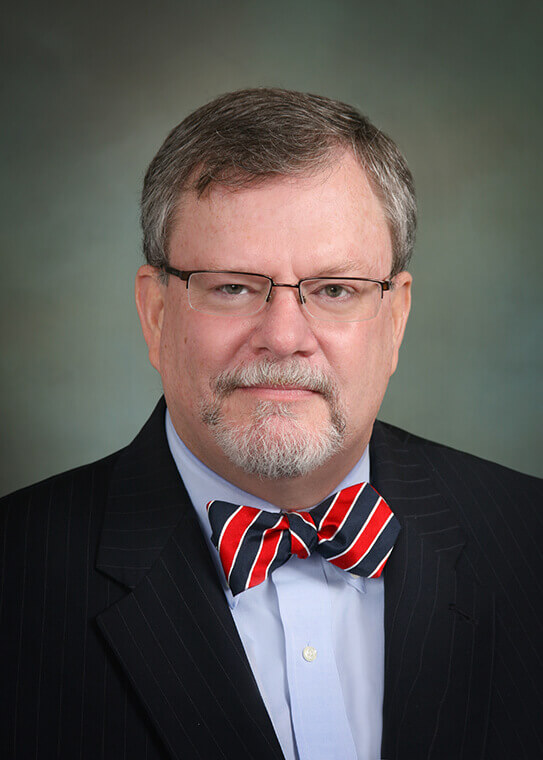
Dr. W. Michael Hawes
Dr. W. Michael Hawes is serving on the Stellar Award Evaluation panel for the first time. From 2014 to 2023, Dr. Hawes directed Lockheed Martin's Orion Program office. Prior to joining the Orion Program, Dr. Hawes served as the Director for Human Space Flight Programs with Lockheed Martin's Washington Operations organization. In this role, he was responsible for representing the Human Space Flight/Space Systems Company organization with the Administration and the congress. Dr. Hawes has a diverse background of program management, aerospace engineering, mission operations, and leadership experience that is critical to leading one of the company's most notable programs. During his career with NASA, Dr. Hawes served as the Associate Administrator for Independent Program and Cost Evaluation (IPCE) where he was responsible for providing objective studies and analyses in support of policy, program, and budget decisions by the NASA Administrator. He also served as the Deputy Associate Administrator for Program Integration in the Office of Space Operations at NASA Headquarters in Washington, DC, and supported the Space Shuttle Program focusing on Return to Flight actions as well as the transition and disposition of Space Shuttle assets following the program's conclusion. In addition, Dr. Hawes served as the Deputy Associate Administrator, International Space Station (ISS) and Program Director for the ISS at NASA Headquarters where he directed the space station budget; established and implemented station policy and coordinated external communications; and liaison activities with the Administration, congress, industry and the station's international partners. Among many career awards Dr. Hawes has received NASAís Distinguished Service and Outstanding Leadership Medals. He has been recognized with three Senior Executive Service Rank Awards and was the NASA recipient of the Prince of Asturias Award from His Royal Highness, the Prince of Spain. Dr. Hawes was inducted as a member of the International Academy of Astronautics in September 2013. He is an Associate Fellow of the American Institute of Aeronautics and Astronautics (AIAA) and a Fellow of the American Astronautical Society. (
Biography courtesy of the American Astronautical Society)
2022 Panel
2020 Panel
2019 Panel
2018 Panel
2016-2017 Panel
2015 Panel
2014 Panel
2013 Panel
2008-2012 Panel
2003-2007 Panel
2002 Panel
2001 Panel
1998-2000 Panel
1997 Panel
Previous Panelists' Biographies
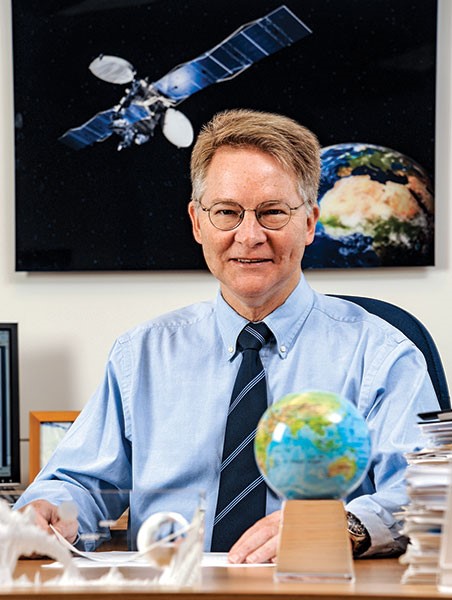
David Thompson
David Thompson is a member of the RNASA Board of Advisors who is serving his second year on the Stellar Award Evaluation panel. Thompson began his four-decade long career as a young engineer at NASAís Marshall Space Flight Center in 1978. In the 1980ís he and two Harvard Business School classmates started Orbital Sciences Corp., a startup that focused on the development of space systems for commercial, military and scientific customers. In order to develop a more diversified space and defense systems company with a broader product line, Orbital merged with Alliant Techsystems in 2014, forming Orbital ATK. In 2018, the company once again joined with a new partner, Northrop Grumman to form Northropís Innovation Systems business sector. Thompsonís business strategy has led his company to Fortune 500 status, reaching more than $5 billion in annual revenue and employing nearly 15,000 people in 2018. He is an Honorary Fellow of the American Institute of Aeronautics and Astronautics (AIAA), and a member of the U.S. National Academy of Engineering and the International Academy of Astronautics. Thompson received the
2019 National Space Trophy.
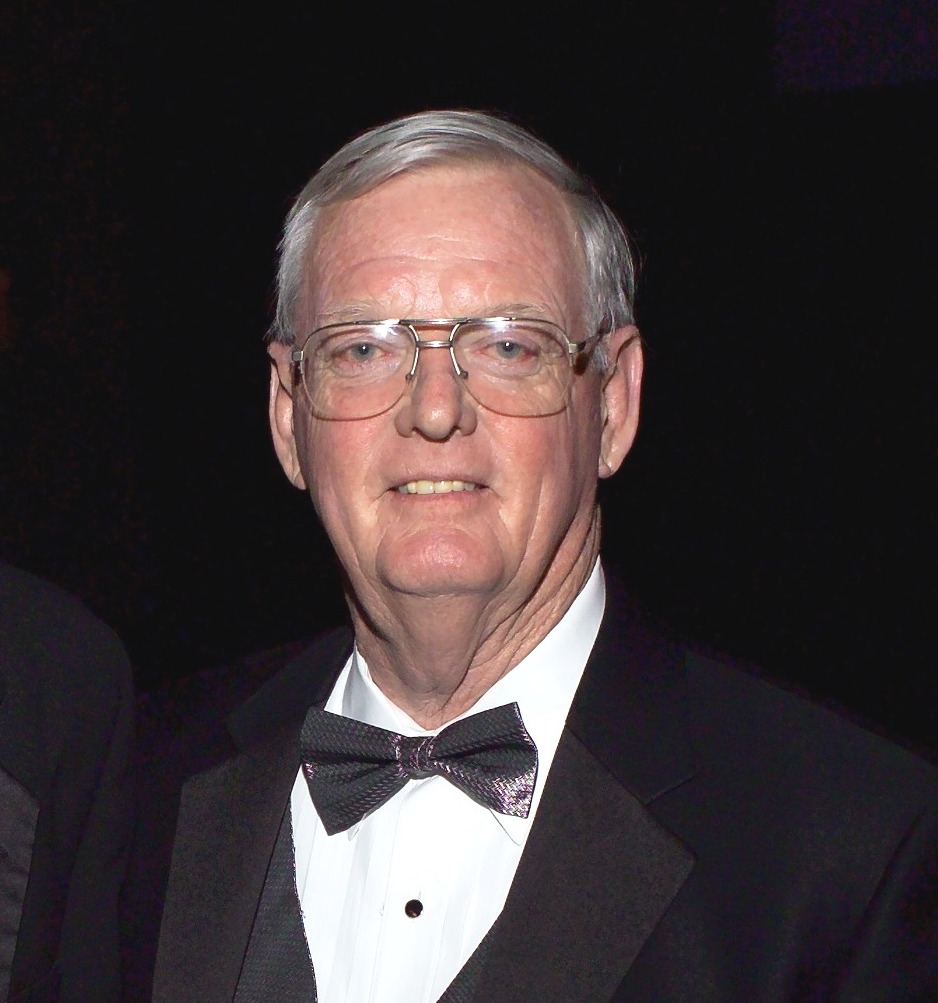
Dr. Glynn S.
Lunney
Dr. Glynn S. Lunney is a member of the RNASA Board of Advisors who served seventeen years on the Stellar Awards Evaluation Panel. Lunney graduated from the University of Detroit in 1958. He worked at what is now Glenn Research Center in Cleveland, Ohio and transferred to Langley in Virginia in 1958. Lunney joined the Space Task Group in 1959 and moved to Houston in 1962. He was a flight director for Gemini and Apollo and head of the Flight Director's Office starting in 1968. He received an honorary doctorate from the University of Scranton in 1971. In 1972, Lunney became manager of the Apollo-Soyuz Test Project, and manager of the Apollo Spacecraft Office starting in 1973.
Lunney served at NASA Headquarters twice during 1976 and later in 1980, first as deputy associate administrator (AA) for Space Flight, and then as acting AA for Space Transportation Operations. In 1981, he returned to Houston to manage the Space Shuttle Program. In 1985, Lunney left NASA and became president of Rockwell's Satellite Systems Division in California. After a tour at Rockwell Space Systems Division, he returned to Houston in 1989 to lead Rockwell's Space Operations Co. that became part of United Space Alliance (USA) in 1995. Lunney was VP and program manager of USA's Space Flight Operations Contract until his retirement in 1999. He was the 2005 National Space Trophy winner.
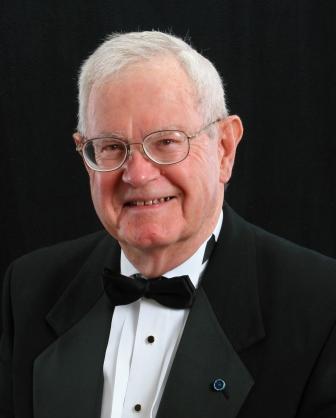
Arnold D. Aldrich
Arnold D. Aldrich is a member of the RNASA Board of Advisors who served 12 years on the Stellar Award Evaluation panel. Aldrich joined the Space Task Group at Langley Field in 1959 following graduation from Northeastern University. He held a number of key flight operations management positions during the Mercury, Gemini, and Apollo programs. He served as Skylab deputy program manager; Apollo Spacecraft Program Office deputy manager during the Apollo Soyuz Test Project; Orbiter Project manager during development of Space Shuttles Discovery and Atlantis; and Space Shuttle Program manager. Following the Challenger accident, Aldrich was appointed director of the National Space Transportation System (Space Shuttle Program) at NASA Headquarters where he led recovery and return-to-flight efforts. He then served as AA for Aeronautics and Space Technology and, later, AA for Space Systems Development.
In 1994, Aldrich left NASA and joined Lockheed Missiles and Space Company in Sunnyvale, California. He was vice president, Commercial Space Business Development and then vice president, Strategic Technology Planning. With the merger of Lockheed and Martin Marietta, he became director of Program Operations at Lockheed Martin's headquarters in Bethesda, Maryland. He retired in 2007 and is now an aerospace consultant. Aldrich has received numerous honors including the Presidential Rank of Distinguished Executive and the NASA Distinguished Service Medal.









